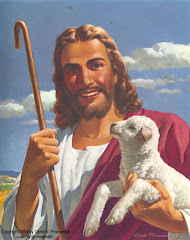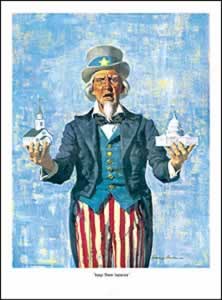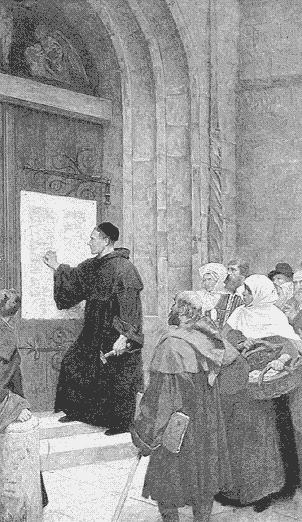“…In May this year a new government formed, speaking a new language, releasing the values and energies of faith organizations, among others, to build what it is calling the Big Society,” said the Jesuit magazine. “The prime minister drew his ideas from Philip Blond, a philosopher whose thinking was formed by the Anglo-Catholic theologian John Milbank and Catholic social teaching on civil society.
The, “on the eve of Pope Benedict’s arrival, the Conservative Party chairman told Anglican bishops that the government would ‘restore faith to the heart of Britain,’ promising an end to the exclusion of the religious voice from public life… The [papal] visit has helped to consolidate the government’s new faith-friendly stance.”
“Pope Benedict XVI’s four-day state visit to the United Kingdom, the first ever by a pope, quickly overturned negative expectations of apathy and hostility. Bidding him farewell at Birmingham’s airport, Prime Minister David Cameron told the pope he had made the nation ‘sit up and think’ and seemed to suggest that secularism had not, after all, gained the upper hand. Faith, Mr. Cameron said, was ‘part of the fabric of our country…a vital part of our national conversation.’
“The prime minister’s remarks suggested that the pope, who sought to deliver a sustained if gently reasoned salvo against what he called ‘aggressive secularism’ and to mount a passionate case for the inclusion of faith in public life, was pushing at an open door.”
America magazine also pointed out that the papal appeal was to integrate faith (meaning Catholic principles of mixing church and state) into public life. “The pope’s call to recognize the necessary interconnectedness of faith and reason, religion and politics, belief and society was made in arguments that were as persuasive as they were reasonable.”
Though Jesus Himself separated church and state when he said, “render unto Caesar the things that are Caesar’s and unto God the things that are God’s, the Pope is advocating that religion and politics should work closely together. If the old Holy Roman Empire is going to be resurrected, it is essential for the papacy to assert its philosophy in public at every opportunity. Benedict XVI was not slack in doing so throughout his trip to Britain.
“Although he returned constantly to this theme in homilies and speeches throughout his visit, the message was delivered most categorically in an address to political and civil leaders in Westminster Hall… The sight of the British political establishment, including a row of former prime ministers, waiting patiently for the successor of St. Peter to address them from a gilded chair, then clapping enthusiastically as he entered to a fanfare of trumpets, will remain the icon of the visit. The fact of it happening at all, as the pope himself acknowledged, demonstrated that faith and public life were, after all, interlinked.
“Westminster Hall left some wondering whether this was the end of the myth of Britain as a Protestant nation-state,” wrote the magazine. Perhaps America magazine is pointing out that Britain has long ceased to be a Protestant nation-state, and now it is becoming Catholic again. And the Speaker of the House of Commons, John Bercow, even suggested this in his welcome speech to the pope. “What was once considered inconceivable now seems entirely natural,” he said.
The pope warned “against a ‘failure to appreciate not only the rights of believers to freedom of conscience and freedom of religion, but also the legitimate role of religion in the public square” and called for religious bodies ‘to be free to act in accordance with their own principles and specific convictions.’ This, he said, was the best guarantor of the freedoms that made Britain great.”
But it wasn’t just politics that the pope addressed. He also pushed the frontiers of ecumenism. At a prayer service in Westminster Abbey where he and the Anglican Archbishop Rowan Williams prayed together, the Pope said, “What we share, in Christ, is greater than what divides us…”
“Earlier, at Lambeth, the pope reframed the path to ecclesial unity as no longer about theological dialogue but about collaborating in witness to ‘the transcendent dimension of the human person and the universal call to holiness.’ He cited Cardinal John Henry Newman as exemplifying the ‘virtues that ecumenism demands.’”
What this is saying is that the ecumenical dialog between the Catholic Church and the Anglican Church no longer has any substantial theological differences. They are essentially one. Now it is only a matter of some practical differences. Moreover, it is time, the pope was saying, for the Anglican and Catholic communions to openly share a common witness that their faiths are the same.
“Pope Benedict’s other triumph was his direct response to the chorus of searing criticisms of the church’s (mis)handling of clerical sex abuse,” said America magazine. While it is probably true that Benedict XVI overcame at least some of the hostility over the sex abuse scandal, the real papal triumph is in the disintegration of the Church of England, and in stripping it of its Protestantism.
The papal state visit to Britain opens the way for more direct interaction between the Vatican and the British government.
Even (formerly) Protestant Britain is ready for it.
“All the world wondered after the beast.” Revelation 13:3.
SOURCE
















0 comments:
Post a Comment